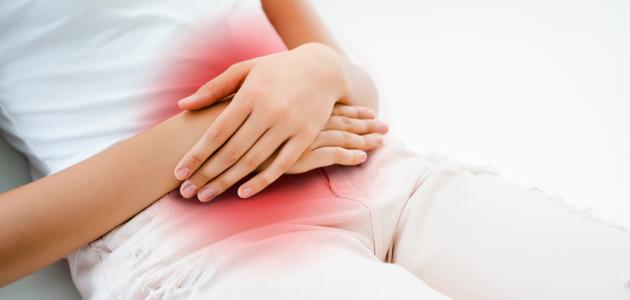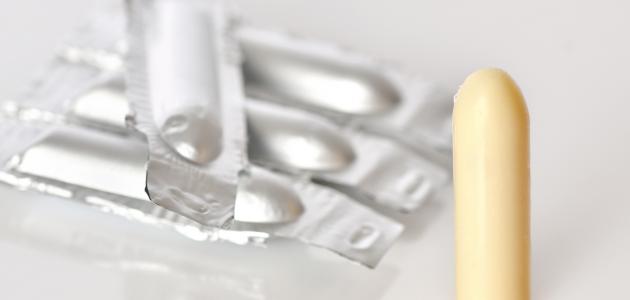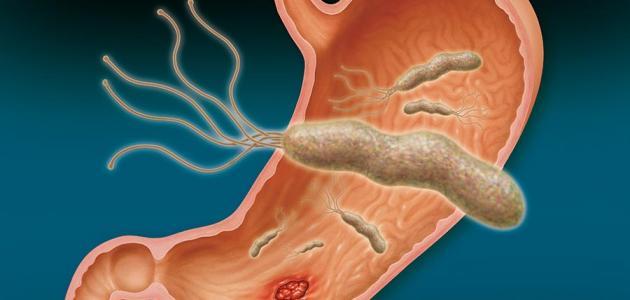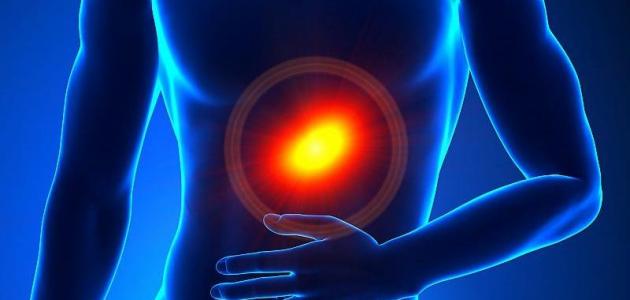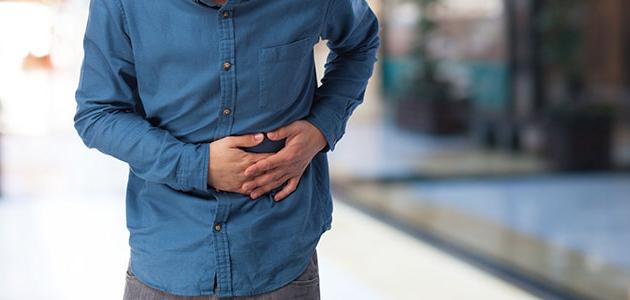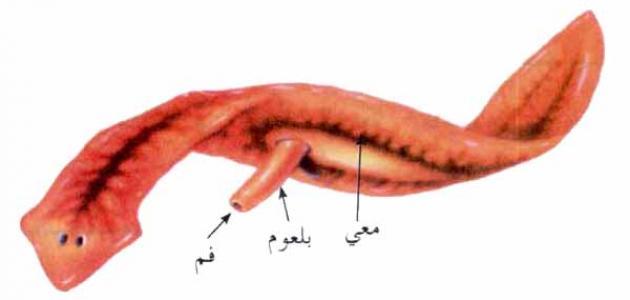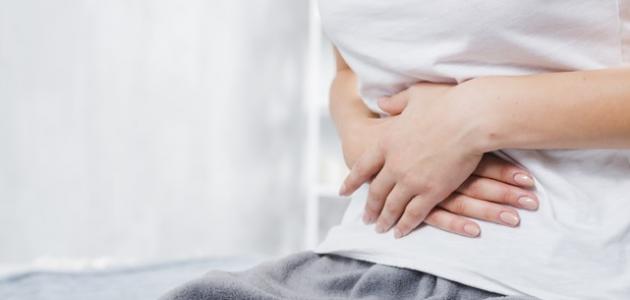Abdominal gas
The presence of gases in the digestive system is normal, as they represent part of the digestion process, and excess gases usually come out through the mouth in what is known as burping, or they may come out of the intestine through the rectum in what is known as flatulence or farting (in English: burping). : Flatulence), and a person may suffer from bloating (in English: Bloating), which is represented by the accumulation of excess gases in the stomach and the failure to exit from it, and the accumulation of gases or the feeling of pain associated with gases is attributed to many factors and causes; Including eating foods that may produce these gases, and therefore making some simple changes in the life system and the nature of the diet would help relieve the symptoms of gases, in addition to that some medicines that are dispensed without a prescription can be used, but if these excess gases are caused For other health problems, the cause must be identified and treated.
Tips for dealing with flatulence
Annoying stomach gases can be reduced by changing the diet, taking the necessary medications, and reducing swallowing air. The following is a detailed explanation of these matters.
change diet
There are some foods that increase the production of gases and thus increase the possibility of bloating, and therefore reducing the intake of these foods may help the patient get rid of bloating, so the patient should write down the names of all the foods and drinks that he eats and drinks, to know which of them may cause the occurrence of bloating, Examples of these foods include:
Read also:What are the causes of gases in the stomach- Sugars, it is recommended to reduce them due to the possibility of digesting and breaking them down easily in the digestive system.
- Dry legumes, fruits and bran that contain fermented carbohydrates, and it should be noted that the problems caused by fermented carbohydrates are not limited to the production of more gases only, but also stimulate germs to develop tooth decay (in English: Tooth Decay), and therefore reducing the intake of these foods is due The patient has many health benefits.
- Milk and its products, some people with lactose intolerance may notice an improvement when they reduce the intake of milk products, and they can be replaced by using milk or its lactose-free or low-lactose products, as these products have the same nutritional value as existing ones. In regular milk, and in the event of a complete cessation of drinking or eating milk and its products, it is possible to obtain calcium and vitamin D from other sources; Such as: bread, juice, fortified breakfast cereals, calcium and vitamin D supplements.
- Alcohol, it is worth completely abstaining from drinking alcohol, given that it impedes the process of digesting food in the intestines, and this in turn keeps food in the intestines for a longer period, which leads to increased gas production.
- Fried and fat-rich foods, as reducing them helps to empty food from the stomach quickly, allowing gases to move into the small intestine.
- Foods rich in fiber, as it is advised to avoid eating them for several weeks, and then return to that gradually, and in this context it is recommended to consult a doctor to ensure that dietary fiber intake is maintained in a healthy manner.
- Reducing the intake of foods rich in sulfur compounds; Especially if the smell of gases is annoying, and among these foods: broccoli, Brussels sprouts, cabbage, and cauliflower. It should be noted that foods that contain high levels of protein may also cause the appearance of an unpleasant smell of gases, and this requires mitigation.
- Other types of foods and drinks that should be reduced. Such as whole grains, artificial sweeteners, and soft drinks.
Life style modification
Following certain patterns and practices may contribute to reducing the problem of flatulence, including the following:
Read also:Causes of colic and diarrhea- Practicing movement after eating, as this is considered one of the effective ways to reduce bloating and discomfort that a person feels after eating meals, although many people feel the desire to take a nap after eating a large meal, but it is better to replace naps By walking for 10-15 minutes, it is indicated that aerobic exercises including walking, jogging, and gymnastics will help pass gases more quickly through the digestive system.
- Avoid lying down after eating. Although a person feels better when lying down, this position contributes to reducing the body's ability to excrete gases and retain gases in the body.
- In some cases, people with a separation of the abdominal muscles known as diastasis recti, or those who have had abdominal surgery, may have difficulty passing gas through the digestive tract, due to the role of the abdominal muscles. The stomach helps to transport gases through the intestines, and in these cases, exercises to strengthen the abdominal muscles or walking can help pass gases through the digestive system.
- Controlling tension and stress, as they may affect the digestion process by affecting the nerves in the digestive system, and therefore taking the means that enable them to be controlled, including regular exercise, will help alleviate these problems and thus improve the digestion process. and relieving bloating.
- Avoid practices that cause swallowing large amounts of air, such as avoiding chewing gum, smoking, eating hard candy, wearing ill-fitting dentures, swallowing food instead of chewing it, drinking liquids while eating, sipping hot beverages, drinking liquids using a straw, and Pointing out that eating quickly would also cause a gas problem, and in cases where a person has difficulty slowing down the speed of eating, some procedures can be followed that help him to do so; such as putting the spoon aside after each bite of food until the bite is chewed and swallowed completely.
- Take the means that enable the treatment and control of health conditions that are associated with swallowing large amounts of air, such as chronic postnasal drip, chronic pain, and anxiety disorders.
- Eat small amounts of foods, as most of the foods that cause gas production are part of a healthy diet, and to verify this, you can eat small amounts of these foods and then monitor the body's response to that.
Medication for stomach gases
Some over-the-counter medications help reduce the accumulation of gases in the digestive system and relieve the resulting symptoms. Among these medications, we mention the following:
Read also:Symptoms after cholecystectomy- Medicines that contain the enzyme alpha-galactosidase: (in English: Alpha-Galactosidase), these medicines contain the enzyme that the body needs to digest sugars found in many foods, and a person can take the medicine before eating to break down the sugars obtained during eating, and doctors recommend it for adults and children over the age of 12 years.
- simethicone (in English: Simethicone), it contributes to relieving pain and flatulence caused by abdominal gases, by facilitating the passage of gases through the digestive system, and this medicine can be used for children and infants.
- Lactase tablets and drops: (in English: Lactase), these medicines are used for people with lactose intolerance, as the lactase enzyme helps to digest the lactose found in foods and drinks, thus reducing the accumulation of gases and the occurrence of bloating and diarrhea, and this medicine is considered unsuitable for some groups; such as children under the age of three years, pregnant and breastfeeding women, and in general it is worth consulting a doctor before using it.
- Antacids containing simethicone: (in English: Antacids Contain Simethicone), simethicone works to collect gas bubbles in the stomach, so that it becomes easy to get rid of, and it must be noted that these drugs are ineffective in cases of gases accumulated in the intestines, and the patient can take these drugs before eating, and they differ Its dose varies from person to person according to the person's condition and what the doctor recommends.
- activated carbon tablets (in English: Activated Charcoal), these tablets help to get rid of gases gathered in the colon, and it is recommended to use them at a rate of 2-4 tablets before or after a meal, about an hour after it ends.
- Sub-bismuth salicylate: (in English: Bismuth Subsalicylate), this medicine is used to reduce the odor resulting from the breakdown of hydrogen sulfide, and it may also be useful in alleviating some other forms of bad breath, and it is not recommended to use this medicine frequently or for a long period of time due to the possibility of Bismuth poisoning occurs in people who are allergic to aspirin.
- Probiotics: Also known as probiotics, the beneficial bacteria found in yogurt and in some over-the-counter supplements may help relieve gas-related symptoms by replacing the bacteria responsible for producing some of the gas.
- Gastrointestinal motility drugs: (in English: Prokinetic Medicines), these medications can help relieve bloating and belching, and most of these medications require a prescription to be dispensed.
- Antispasmodics: (In English: Antispasmodic), these medications can reduce bloating and belching, and these medications do not require a prescription to be dispensed, including Mebeverine, Alverine.
Treatment of gas-causing conditions
There are some health problems that affect the digestive system, causing bloating and gases as one of its symptoms, and the treatment depends on the nature of the condition, its severity, and the symptoms that the patient suffers from, and in general, problems that affect the digestive system can be treated in several ways, and the following are some health problems that cause gases And bloating and methods of treatment.
constipation
Constipation can be reduced and prevented by following some procedures, including the following:
- Adding fiber to the diet.
- Do regular exercise.
- Walk an average of four times a week, each lasting between 20-30 minutes.
- Drink plenty of fluids, and it is recommended that they be drunk during meals, with fiber supplements, and during different times of the day.
Inflammatory bowel diseases and Irritable Bowel Syndrome
Experts have created a diet suitable for irritable bowel syndrome, also known as Irritable Bowel Disease patients, in order to relieve gas and bloating and it is called the Low FODMAP Diet. FODMAP is an acronym for a group of food molecules known as carbohydrates Fermentable Carbohydrates, which are found in many foods such as: fruits, wheat, and dairy products. As bacteria digest these molecules, a person feels bloated and accumulates gases, so patients with irritable bowel syndrome notice that avoiding eating foods that contain fermentable carbohydrates may help alleviate symptoms, hence the importance of a low-FODMAP diet, but it should be noted that this type Some diets are considered restrictive and difficult to follow; Therefore, it is worth seeking the help of a nutritionist in the event of a desire to follow him, in a way that enables him to obtain the nutrients that the person’s body needs.
Some patients, especially those with Crohn's Disease and those with narrowed intestines, notice that cooking vegetables well may help break down the fibers in them, and this in turn facilitates digestion, and thus reduces symptoms of bloating and gas.
celiac disease
Celiac disease or celiac disease is a disease that affects the digestive system, so that the intestines cannot absorb gluten (in English: Gluten) found in wheat, barley, and corn, and eating foods that contain gluten leads to the suffering of people with celiac disease from some problems; Including diarrhea, abdominal pain, fatigue and exhaustion, and it should be noted that there is no complete cure for this disease, but a gluten-free diet can help alleviate the symptoms of the condition.
Deodorizing products
The use of products that remove unpleasant odors such as underwear made of carbon fiber, but they are expensive, and pillows lined with charcoal can be used, but they may not be effective in some cases.
Psychological treatments
Psychological treatments can be used for people who cannot tolerate the amount of natural gases in the stomach, in addition to people who suffer from excessive belching, especially if the belching is caused by swallowing air, and among the psychological treatments used in these cases: Mindful Awareness ), and cognitive behavioral therapy (in English: Cognitive Behavioral Therapy).

